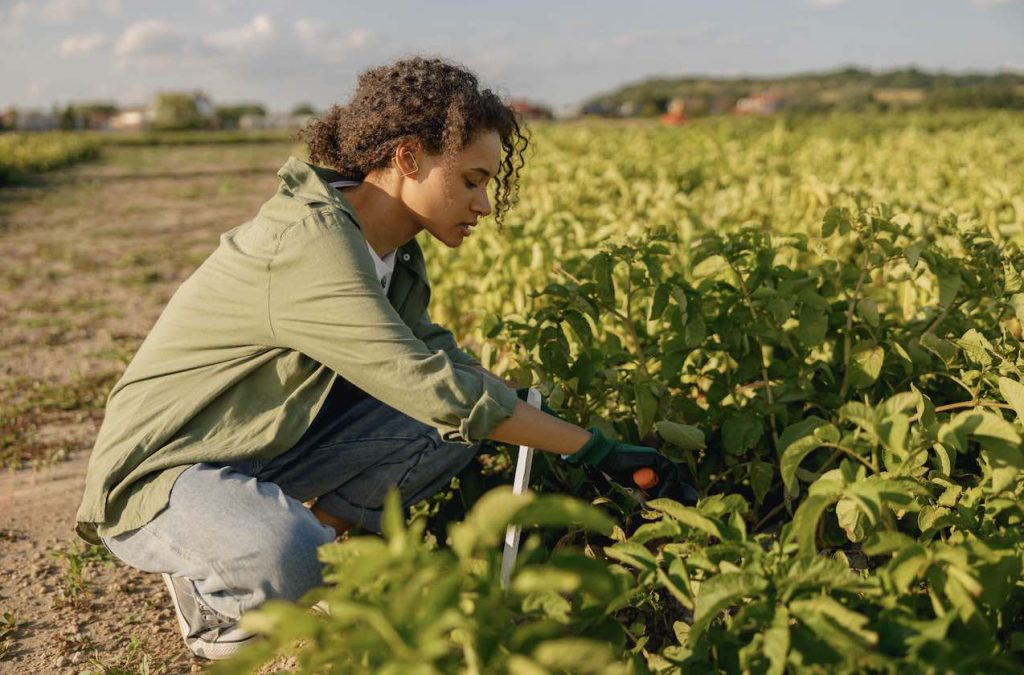
First Look: Senate Releases Farm Bill Framework
Check out highlights from the Senate farm bill framework that caught our eye.
Put forth by Congress once every five years, the farm bill shapes the structure of and funding for our food and farm system. It includes components like farm commodity support, crop insurance coverage, conservation programs, nutrition assistance programs, and discretionary U.S. Department of Agriculture (USDA) programs.
Simply put, the farm bill determines the kind of food system we have. Reforming it is the best way to drive major policy reforms in food and agriculture. See our 2023 Farm Bill policy priorities here, and our full farm bill platform in our Fair Farm Bill Policy Handbook.
In our fight for a #FairFarmBill, we are taking on powerful corporate agriculture interests — and we need your help! The following resources are meant to provide farmers, ranchers, advocates, and policymakers with tools to join us as we fight back.
We’ve zeroed in on four pillars of change in the next farm bill. Major shifts in policy within these four categories would mean we’ve finally broken the Big Ag-friendly mold of the past.
The majority of government funding and taxpayer-backed programs in agriculture support corporate-controlled livestock and poultry operations and the production of grains (like corn and soybeans) to feed their animals. If we shifted resources to the production of food that feeds people, farmers could escape the treadmill of industrial agriculture and profitably grow food for their communities.
Everyone deserves a fair chance to succeed, but the USDA has admitted to discriminatory practices that stack the deck against marginalized farmers. We will all benefit in a fair and inclusive society, so we need to make credit accessible to all, ensure robust representation on government boards and commissions, and direct funding to organizations led by members of disadvantaged communities that provide technical assistance.
A food system controlled by corporate behemoths poses a food security and a national security threat. By breaking up agrifood corporations and investing in local and regional food systems, we can enhance market transparency and competition. It’s time to empower people, not corporations, and create a resilient food and agriculture system that will feed us even if calamity strikes. If we build local, we can eat local!
Subsidized insurance programs offer protection in the case of crop failure, but they primarily benefit farms that grow corn, soybeans, cotton, sugar, and wheat. These same farms also receive the lion’s share of disaster payments — without any requirement that they work to mitigate the extreme weather patterns that contribute to the rising costs of these taxpayer-funded programs. In order to benefit from these programs, recipients should be required to commit to conservation and regenerative practices.
For anyone new to the farm bill.
Curious to learn about all the farm bill programs, agencies, and acronyms? We’ve created a handy Farm Bill Primer to get you up to speed.
For anyone interested in learning about and lifting up Farm Action’s policy platform.
For advocates leading a farm bill campaign.
We have created a free, downloadable, unbranded advocacy toolkit packed with resources (including our Handbook and fact sheets) for a successful farm bill campaign! Feel free to copy, paste, download, edit, and distribute all or portions of these documents at will. Let’s change some minds together!
For anyone educating elected officials and other policy makers.
We want to see language from these bills, many of which have bipartisan support, incorporated into the farm bill. These policies will transform the policy and financial structures that power food production and distribution in the U.S. and create a more fair, inclusive, and competitive system.
Click here to see a list of bills containing policies Farm Action Fund recommends for inclusion in the farm bill, and click here to see all the legislation endorsed by Farm Action Fund.
For anyone interested in learning about Farm Action’s policy platform.
As 2023 Farm Bill debates heat up, we’re energizing and educating our network with a series of webinars that will provide the tools you need to challenge Big Ag’s status quo.
Our recommendations for a Fair Farm Bill stand on a firm foundation of research, which illustrates with data the real-life experiences of farmers, ranchers, and rural Americans.
In 2020, we investigated the state of concentration in our food system and showed how just a few corporations control the way billions of consumers, farmers, and farmworkers work and eat.
Then, we targeted monopoly corporations’ industrialized business model, revealing the production costs it pushes onto others in order to reap excessive profits. We also debunked the myths industrial agriculture uses to defend its business model and defeat any meaningful reforms.

Check out highlights from the Senate farm bill framework that caught our eye.

House Agriculture Committee Chairman Glenn “GT” Thompson released his framework for the 2024 Farm Bill. Here’s what caught our eyes in the proposal.

Major corporations and the largest farms are gearing up to take advantage of our farm safety net programs in the next farm bill.